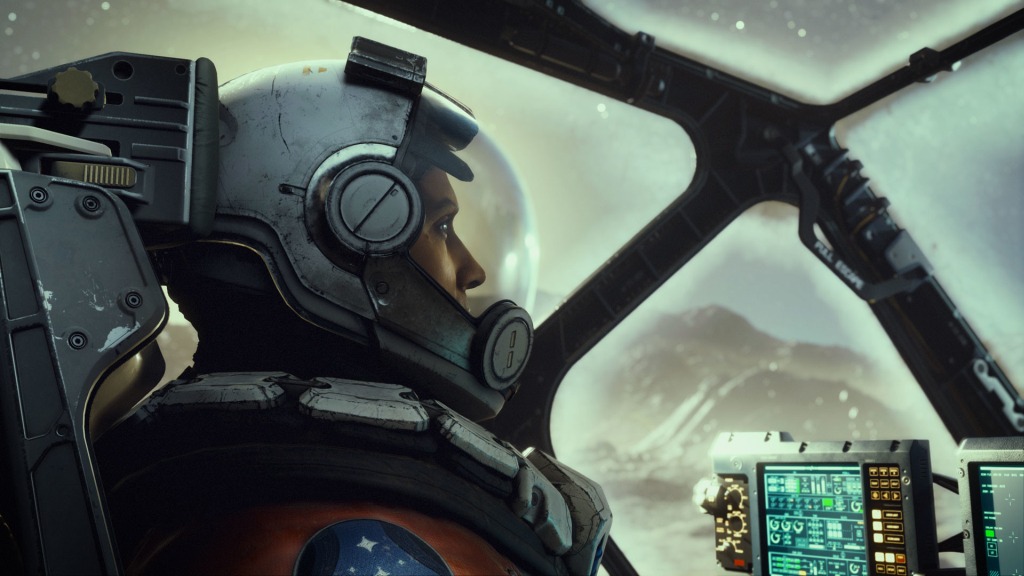Also On: PC
Publisher: Bethesda Softworks
Developer: Bethesda Game Studios
Medium: Disc/Digital
Players: 1
Online: No
ESRB: M
The first thing that I’d imagine most people are wondering about in regards to Starfield is how much the game feels like a traditional Bethesda produced RPG? Stripping away the new setting, story, and characters, I’d say that if you’ve enjoyed and/or are familiar with titles like Skyrim or Fallout 4, you’ll absolutely see connections between those games and Starfield. Mechanically, it doesn’t feel too dissimilar to Bethesda’s prior “modern” projects, but I don’t necessarily think that’s a bad thing. What you’re left with in Starfield is a tried and true approach to RPG storytelling and open world shenanigans, allowing you to interact with multiple NPCs across multiple locations, all while freely exploring huge spaces, and adhering to the in-game rules or chucking those straight out the window in an attempt to become an agent of chaos within the game.
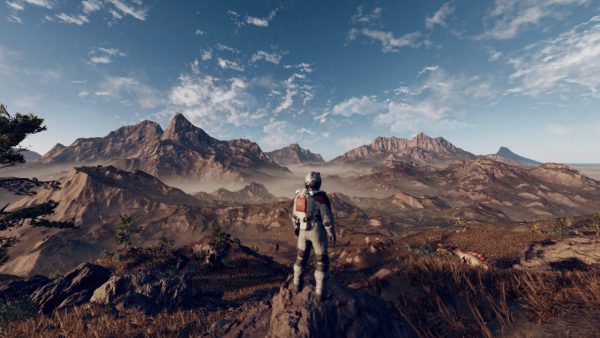 That said, there’s plenty in Starfield that feels fresh and exciting. The space/future setting is really well realized, even if there are some limitations and invisible walls in place to keep the player a bit more focused on the interesting stuff and less bogged down in mindless wandering. You could argue that it’d be great to have a game where you land on a planet, can map out every section of the world, take off into space, point in a direction and just go there, but Starfield doesn’t quite work out that way. I think it’s for the best, because a number of planets are pretty barren, featuring some limited resources to collect and random locations to explore that tend to feel the same after a while.
That said, there’s plenty in Starfield that feels fresh and exciting. The space/future setting is really well realized, even if there are some limitations and invisible walls in place to keep the player a bit more focused on the interesting stuff and less bogged down in mindless wandering. You could argue that it’d be great to have a game where you land on a planet, can map out every section of the world, take off into space, point in a direction and just go there, but Starfield doesn’t quite work out that way. I think it’s for the best, because a number of planets are pretty barren, featuring some limited resources to collect and random locations to explore that tend to feel the same after a while.
Considering the amount of development time and money it’d take to blow out each of the multiple planets featured with interesting and unique content with zero limitations, I think Bethesda’s more focused approach works fine. You still have tons to do and see, and you’ll have a hard time running out of exploration options across 100+ hours of gameplay.
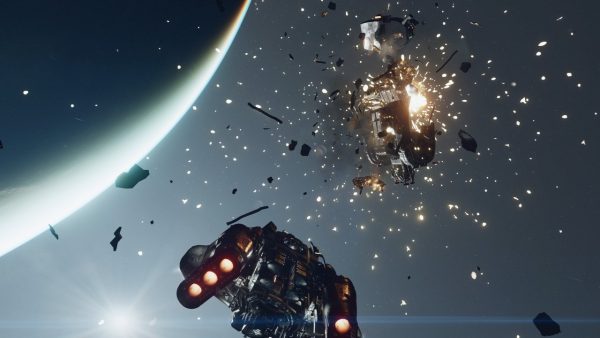 You’ll still have plenty of interesting things to do in Starfield. One of the biggest aspects is manning your own starship, hiring crew, getting into space battles, boarding enemy vessels, and managing all your various ship systems to your liking. Space exploration is mostly centered around being in orbit above planets, moons or outposts. You can move around freely in these zones, bump into other ships, manage your speed, direction and so on. If there are other ships in the vicinity you can attempt to hail them, leading to some unique situations on occasion, or you can just opt to go crazy and open fire on nearby vessels and see what happens. Much like main cities and populated areas in Fallout or Elder Scrolls, large planets may have security forces in place to help deter piracy or general mayhem, but there are plenty of smaller planets to see in Starfield where their space sectors are a bit more like the wild west in space.
You’ll still have plenty of interesting things to do in Starfield. One of the biggest aspects is manning your own starship, hiring crew, getting into space battles, boarding enemy vessels, and managing all your various ship systems to your liking. Space exploration is mostly centered around being in orbit above planets, moons or outposts. You can move around freely in these zones, bump into other ships, manage your speed, direction and so on. If there are other ships in the vicinity you can attempt to hail them, leading to some unique situations on occasion, or you can just opt to go crazy and open fire on nearby vessels and see what happens. Much like main cities and populated areas in Fallout or Elder Scrolls, large planets may have security forces in place to help deter piracy or general mayhem, but there are plenty of smaller planets to see in Starfield where their space sectors are a bit more like the wild west in space.
On ground combat is a little more, well, grounded. It also doesn’t feel too dissimilar to the shooting in Fallout, minus the VATS system. I think the shooting feels a tad bit tighter and more impactful overall than Fallout, but enemy A.I. is virtually non-existent at times, so unless you’re encountering a foe that clocks in at multiple levels above you, you’ll likely breeze through most shootouts. There’s a solid variety of guns, featuring laser weapons, ballistics, explosives, and some grenade variants. The gravity of a location does come into play a little bit, so you’ll be executing some pretty impressive leaps when you’re in a low gravity environment, but you’ll also quickly gain access to a boost pack that’ll let you make limited jumps regardless of where you’re at.
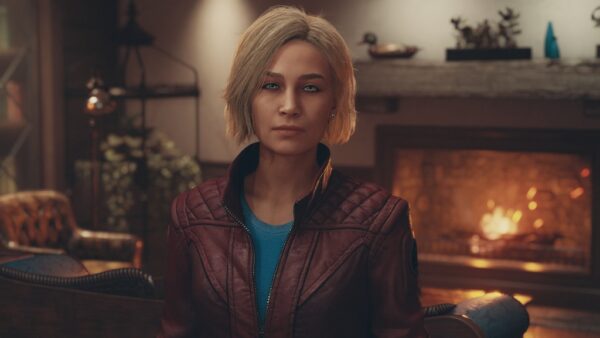 The various cities you’ll get to explore in Starfield are large in scope, filled with plenty of NPCs to interact with, and missions to take on both small and large. You could easily miss interactable NPCs as there’s really nothing that helpfully highlights who might have a quest or not. I’m sure there are people who prefer that approach but I’d like the opportunity to see and do everything I possibly can and I can’t help but feel that I’m constantly missing opportunities even when I try to be thorough in my exploration. The first main city you’ll likely hit, New Atlantis, is just massive in scale, but even some of the more outlier towns can be pretty large overall.
The various cities you’ll get to explore in Starfield are large in scope, filled with plenty of NPCs to interact with, and missions to take on both small and large. You could easily miss interactable NPCs as there’s really nothing that helpfully highlights who might have a quest or not. I’m sure there are people who prefer that approach but I’d like the opportunity to see and do everything I possibly can and I can’t help but feel that I’m constantly missing opportunities even when I try to be thorough in my exploration. The first main city you’ll likely hit, New Atlantis, is just massive in scale, but even some of the more outlier towns can be pretty large overall.
On the performance side of things, my time with Starfield on an Xbox Series X was mostly fine. As expected, I did run into a few bugs, some graphical issues like character faces or bodies not fully loading in, leading to some monstrous looking dialogue moments. The frame rate does okay at 30 frames per second, but I did encounter moments of slowdown that seemed mostly tied to environmental effects like rain, which caused some noticeable hiccups here and there. I also don’t think the game plays well with the Quick Resume feature on Xbox, when I’d come back to the game at times there’d be a good 30 seconds or so of extreme slowdown before everything would go back to normal, so I’d advise you to maybe limit the use of that function until it’s hopefully patched.
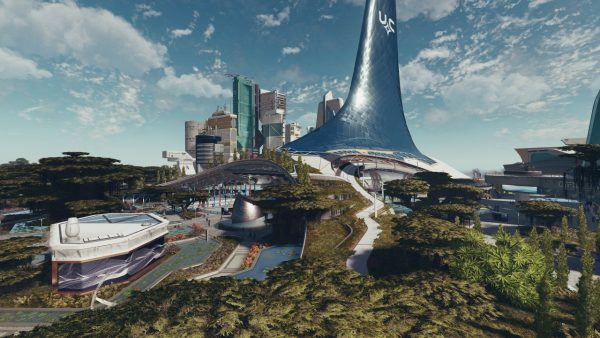 Starfield is, overall, a very good RPG from a studio known for making very good RPGs. Not the most surprising news I’m sure, but it’s nice to see that they’re able to break away from the Elder Scrolls and Fallout settings successfully, and I do feel like their take on space exploration is a breath of fresh air for this type of RPG experience. It’s a huge game overall, so if you’re the person that believes time played = value, you’ll be pretty happy with this one for sure, but at the same time if you’re worried about overall quality, I think you’ll still enjoy your time with Starfield. I look forward to playing a lot more of it over the next couple of months, attempting to see everything the game has to offer. So in short, check it out, it’s pretty darn good.
Starfield is, overall, a very good RPG from a studio known for making very good RPGs. Not the most surprising news I’m sure, but it’s nice to see that they’re able to break away from the Elder Scrolls and Fallout settings successfully, and I do feel like their take on space exploration is a breath of fresh air for this type of RPG experience. It’s a huge game overall, so if you’re the person that believes time played = value, you’ll be pretty happy with this one for sure, but at the same time if you’re worried about overall quality, I think you’ll still enjoy your time with Starfield. I look forward to playing a lot more of it over the next couple of months, attempting to see everything the game has to offer. So in short, check it out, it’s pretty darn good.
Note: Bethesda Softworks provided us with a Starfield Xbox Series X|S code for review purposes.

